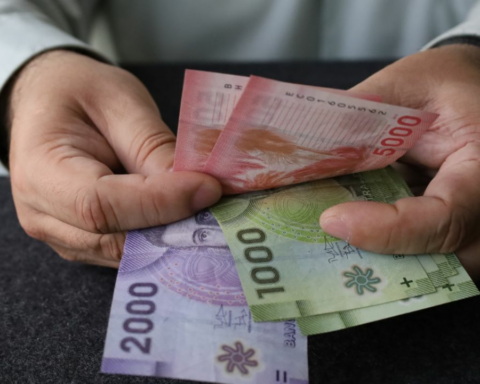It is not reasonable that in the midst of a health pandemic such as SARS-CoV-2, which paralyzed Chile and the world for a long time, and which is still developing news, the contagion with this disease from presidential candidate Gabriel Boric is not considered as information of high public interest. Nor is it true that the debate on the subject is limited to disavowing the publication of information about the disease just because it is – presumably for some – illegal or inaccurate, attributing it exclusively an instrumental political value, without considering that the health of the highest Elective magistrates of the country, in office or aspiring to them, evidently constitutes information of public interest.
What happens with the Boric contagion is not only a clinical situation but also a sign of (go) citizen responsibility, of not strictly complying with the control and traceability protocols, mandatory for all citizens alike. Given the information available today, it can be concluded that this candidate for President acted with lightness and lack of caution in the face of his first symptoms, with which he became – for a couple of additional days, which should have been avoided – into a vector of contagion, putting their own health and that of their collaborators and followers at risk.
The electoral bubble that the country has experienced during the year 2021 – especially the current one, of presidential and parliamentary elections – has put a screen of ideological invisibility to the health drama that the country continues to experience. Primary health services are practically paralyzed, the care of chronically ill patients, mainly older adults, behind in years and without regular operation, and today it is very difficult to get medical attention in any specialty or service, be it public or private. All this, without counting the number of deaths from the COVID-19 pandemic, which already exceeds 50 thousand, and the possibility that we are on the verge of a new wave of infections with insufficient health infrastructure for critical care.
It is worth remembering the measures and sacrifices that, in the midst of the pandemic, the population has had to carry out, which have included confinement, labor crisis and states of emergency to prevent infections, which far exceeds the pure clinical aspects.
In this context, it has been the actions of the press that have largely forced the authorities – for example, neither more nor less, the President of the Republic – to respect sanitary measures, to maintain an adequate flow of information and give a public account of the foundations of the measures adopted or actions omitted, including the under-registration of deaths that occurred at the beginning of the pandemic.
Public opinion has also made explicit recognition of the work of the Medical College, which frankly and truthfully stood before the authorities, expressing an independent, critical and constructive voice in the face of the situation, which contributed substantially to the articulation of viable and credible health protocols.
Hence, the defense of the opacity of the medical information of candidate Gabriel Boric made by the president of the Medical College, Izkia Siches, in a shift towards forced and ideological legality on the privacy of clinical data of patients with COVID-19, or they may have it. It is common sense that in a health pandemic the privacy protection thresholds of medical information linked to the pandemic are reduced, precisely to combat it as effectively as possible, for the benefit of the entire community. Especially if the person who has symptoms of having contracted the disease is one of the candidates who aspire to the Presidency of the Republic, who, additionally, have a lower threshold of protection of their privacy than that of ordinary Chileans, to allow are really known to the voters.
Even more so in a country like Chile, which has such stark distances between the quality of public and private care, as well as de facto privileges between first and second category citizens. What builds public trust is transparency, especially of its authorities and political leaders, who rigorously comply with their obligations and avoid the suspicion of non-compliance with what ordinary citizens are obliged to do.
On these, the authority imposes responsibility and self-care, and asks them not to act indifferently in the face of their symptoms, asking them to go immediately to a care center when there is evidence of any symptoms. The same attitude that was expected of a presidential candidate who, given his symptoms, did not go to a center but only called by phone to inquire about them. The result is that, in the end, his concern – which he only addressed in a practical way many hours later – turned out to be real, of a Delta variant of COVID-19. That is indifference and lack of attention, but, as always in Chile, the fault lies with the messenger who first brought the news, in this case, from the digital medium “Interferencia.cl”.








